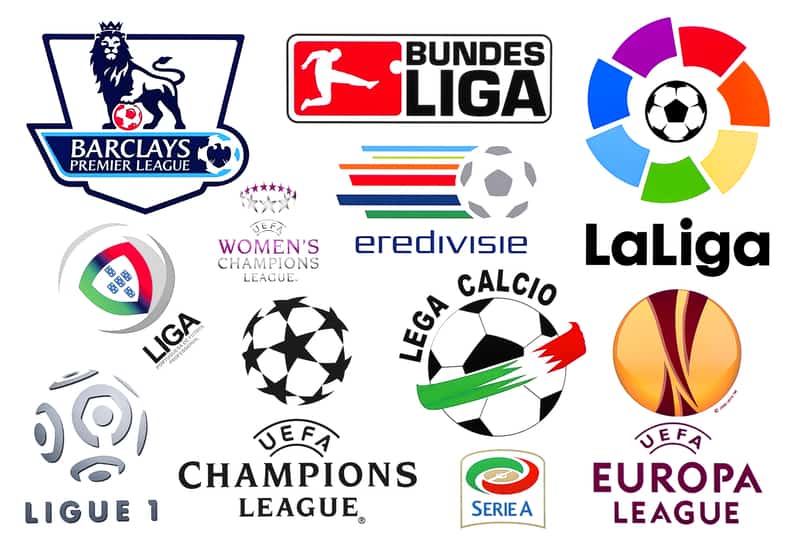- Get link
- X
- Other Apps
Domestic Leagues: The Lifeblood of Football
Domestic leagues form the backbone of football worldwide. These leagues bring together clubs from the same country or region to compete against each other in a season-long battle for glory. From the illustrious English Premier League to the passionate Spanish La Liga, domestic leagues play a pivotal role in shaping the sport's landscape. In this article, we delve into the world of domestic leagues, exploring their significance, history, structures, and impact on the global footballing community.
Significance and Impact:
Domestic leagues hold immense significance for clubs, players, fans, and communities. They provide a platform for local talent to develop and showcase their skills, attracting the attention of national team selectors and international scouts. Domestic leagues foster a sense of pride and identity for fans, who passionately support their local clubs week in and week out. These leagues also contribute significantly to the local economy, generating revenue through ticket sales, broadcasting rights, sponsorships, and merchandise.
Historical Evolution:
The concept of domestic leagues can be traced back to the late 19th century when the first professional football leagues were established. The English Football League, founded in 1888, became the blueprint for many other leagues around the world. Since then, domestic leagues have grown in popularity and professionalism, evolving into multi-tiered structures with promotion and relegation systems that enhance competition and maintain fairness.
Structures and Formats:
Domestic leagues vary in structure and format, reflecting the unique characteristics and traditions of each country or region. The most common structure involves a tiered system, with multiple divisions or leagues interconnected through promotion and relegation. The top tier is often the most prestigious, with the best clubs competing for the league title. Some leagues also incorporate cup competitions, such as the English FA Cup or the German DFB-Pokal, to provide additional excitement and opportunities for teams to compete for silverware.
Global Reach and Fan Base:
Domestic leagues have a global reach, attracting fans from around the world. Premier leagues like the English Premier League and the Spanish La Liga have achieved international fame and boast millions of fans worldwide. The popularity of these leagues is fueled by their competitive nature, the quality of football, and the presence of renowned clubs and star players. Through broadcasting and digital platforms, fans across continents can now follow their favorite domestic leagues and clubs more closely than ever before.
Intense Rivalries:
Domestic leagues give rise to intense rivalries between clubs, often rooted in historical, geographical, or cultural factors. Matches between rival clubs evoke a sense of passion and excitement among fans, creating a charged atmosphere inside stadiums. Some notable rivalries include the Manchester Derby between Manchester United and Manchester City, the El Clásico between Barcelona and Real Madrid, and the Old Firm Derby between Celtic and Rangers in Scotland. These rivalries add spice and drama to domestic leagues, attracting a larger audience and generating intense debates among fans.
Development of Youth and Local Talent:
Domestic leagues provide a nurturing ground for young and local talent to develop their skills and make their mark in the footballing world. Clubs invest in youth academies and development programs, offering aspiring players the opportunity to receive professional training and guidance. Through domestic leagues, young talents are given the chance to showcase their abilities on a bigger stage and attract attention from bigger clubs and national teams.
Promotion and Relegation:
One of the unique features of domestic leagues is the system of promotion and relegation. This system ensures that clubs are rewarded or penalized based on their performance over a season. The top-performing teams in lower divisions are promoted to higher divisions, providing smaller clubs with a chance to rise through the ranks and compete against stronger opponents. On the other hand, the lowest-performing teams in higher divisions are relegated to lower divisions, offering a chance for fresh faces and new clubs to enter the league.
Economic Impact:
Domestic leagues have a significant economic impact on their respective countries or regions. They generate revenue through ticket sales, television and broadcasting rights, sponsorships, merchandising, and tourism. The presence of successful clubs and high-profile players attracts investments and boosts the local economy, creating jobs and supporting businesses related to the football industry. The financial stability and success of domestic leagues have a trickle-down effect, benefiting smaller clubs, grassroots programs, and local communities.
Social and Cultural Influence:
Domestic leagues hold a profound social and cultural influence in their respective regions. Football clubs become focal points of community identity and pride, bringing people from diverse backgrounds together to support a common cause. The rituals, chants, and traditions associated with domestic leagues contribute to a shared culture and create a sense of belonging among fans. These leagues also provide opportunities for social inclusion and engagement, promoting diversity and unity through the love of the game.
Conclusion:
Domestic leagues are the lifeblood of football, providing the platform for clubs, players, and fans to come together and celebrate the beautiful game. With their historical significance, global reach, intense rivalries, and economic impact, domestic leagues play a vital role in shaping the footballing landscape. They foster local talent, develop youth players, and provide opportunities for communities to rally behind their favorite clubs. As football continues to evolve, domestic leagues will remain at the heart of the sport, perpetuating the passion, excitement, and camaraderie that make football a truly universal language.
- Get link
- X
- Other Apps

Comments
Post a Comment